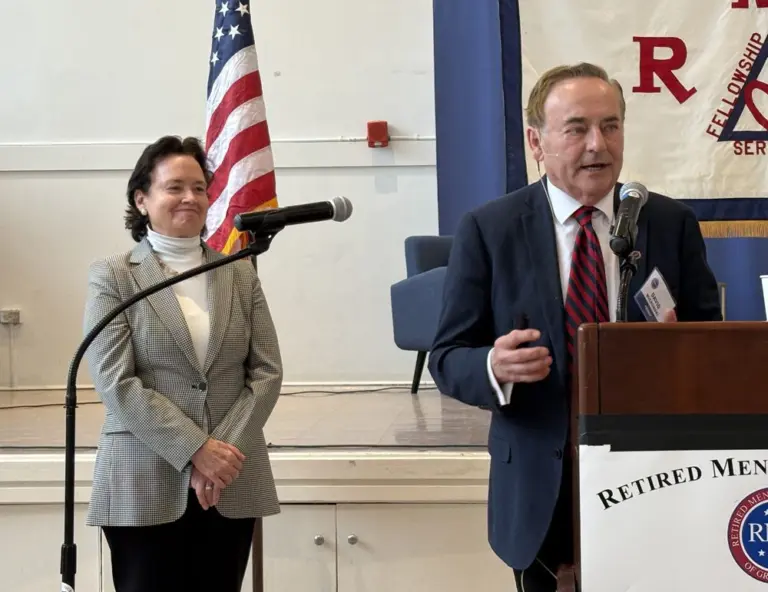By any meaningful definition of political courage, Senator Ryan Fazio and Representative Tina Courpas are exhibiting it. In a state that has long treated energy costs as a regrettable inevitability—something to be murmured about in kitchen corners but rarely confronted in public—these legislators are engaged in an ambitious undertaking: the reintroduction of price sanity to Connecticut’s electric grid.
There are echoes here of Daniel Patrick Moynihan, who once said, “Everyone is entitled to his own opinion, but not his own facts.” The facts in this case are brutal. Connecticut’s rates are double the national average. Its manufacturing job growth is negative, even as the nation’s soars. Its utility bills punish the industrious and subsidize the careless, often with no measurable environmental return.
In a state grown weary of auto-deducted bewilderments, two legislators—Senator Fazio and Representative Courpas—are proposing an act of uncommon clarity: to tell the truth about electricity costs.
Fazio’s legislation, Senate Bill 647, arrives not as a jeremiad against renewable energy, nor as a polemic against government. Rather, it is an appeal—to fairness, transparency, and the principle that a citizen should know what he is paying for, and why.
At the center of this bill is a line item so drably titled that most overlook it: the “public benefits charge.” Harmless in name, it now devours over $800 million annually from ratepayers to fund 57 distinct state programs, many of them otherwise unknown to those footing the bill.
No one would voluntarily fund this collection of subsidies—ranging from well-intentioned energy discounts to bloated renewable contracts priced at eight or nine times the market rate—if presented as a single annual tax. That is the essence of quiet tyranny: to impose not what people would resist if asked, but what they are too distracted to notice.
This is the kind of fiscal architecture that accumulates in the absence of scrutiny. It is government by sedimentation—layer upon layer of intentions, untethered from review or restraint.
To be clear: the problem is not that public energy programs exist, but that they persist without consent, and grow without accountability. Fazio and Courpas’ remedy is modest but profound: bring these charges into the general fund, where they must compete for funding like any other public good—education, transportation, health care.
In doing so, SB647 does not abolish Connecticut’s environmental aspirations. It merely asks that they be subject to the same test any responsible household applies: value per dollar.
This is not regressive conservatism, but democratic hygiene
It is also long overdue. Connecticut has the second-highest electricity costs in the continental United States. Those costs have risen nearly 30% in five years, and the programs embedded in our electric bills have more than doubled in cost since 2018. For the average Connecticut household, this is a hidden $677 annual burden—an energy tax by another name, levied without a vote.
As John Stuart Mill once wrote, “A person may cause evil to others not only by his actions but by his inaction.” To continue this system unaltered is a sin of omission.
Citizens deserve to know when their electric bill has become a parallel taxing mechanism for programs not debated or reauthorized in public view.
The renewable energy sector will survive without subsidies that outstrip market prices by 800%. What may not survive, however, is public trust—when families struggling to cover food, rent, and prescriptions discover they are financing boutique energy initiatives that have never seen a roll-call vote.
This bill is not a rejection of progress but a demand that progress be accountable. To equate oversight with obstruction is to mistake secrecy for virtue.
In this, Fazio and Courpas are restoring not just fiscal sense, but constitutional sensibility. They are asking the legislature to reclaim its authority—to tax openly, to spend justly, and to admit that any policy worth keeping is worth defending in daylight.
The truth is, Connecticut’s energy system— devised in obscurity and financed by stealth—is a civic embarrassment. It deserves a rebuke of the many who enabled this quiet larceny. For years, legislators cloaked indulgent spending in euphemism and siphoned dollars from ratepayers without the honesty of a vote. It should not require political heroics to stop the government from picking your pocket. Yet here we are



